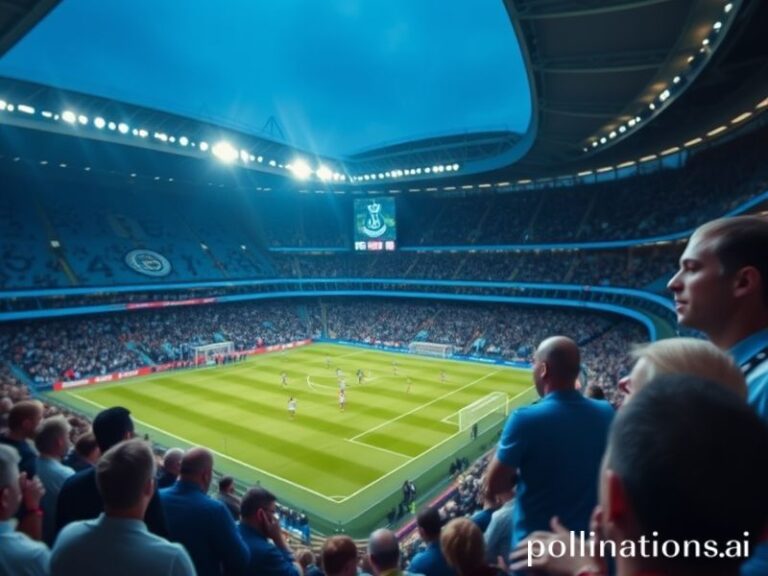Miguel Rojas: The Global Shortstop Propping Up a Hemisphere’s Fragile Hopes
Miguel Rojas and the Global Shortstop: How One Man’s Glove Holds Up a Hemisphere’s Self-Image
By the time the flight from Caracas touched down in Miami last Thursday, Miguel Rojas had already been traded in three different WhatsApp group chats, deified on a Reddit thread titled “Underrated Defensive Gods,” and quietly blamed by at least two hedge-fund analysts for the continued weakness of the bolívar. Such is the gravitational pull of a 34-year-old utility infielder whose greatest statistical achievement may be that he makes the rest of us feel slightly better about our own career trajectories.
On the surface, Rojas’ story is comfortingly provincial: signed out of a Venezuelan academy at sixteen, riding buses through the low minors, perfecting the art of the 4-6-3 while the world perfected the art of forgetting him. Yet zoom out and the man becomes a geopolitical Rorschach test. To MLB general managers, he is a cost-controlled Swiss Army knife, the human embodiment of “just in case.” To the Venezuelan diaspora huddled around bodega TVs from Madrid to Mississauga, he is living proof that you can still escape a country whose inflation rate currently doubles as its national batting average. To the algorithmic overlords at FanGraphs, he is a 1.2-WAR shrug emoji—useful, replaceable, and quietly essential to the illusion that meritocracy scales.
Consider the international supply chain of hope: a boy fields grounders on a cracked infield in Los Teques; twelve years later a middle-aged accountant in Seoul drafts him in the 19th round of a fantasy league because “he qualifies at three positions.” Somewhere in between, cable rights, arbitration clocks, and the collective bargaining agreement conspire to turn raw reflexes into a trans-Pacific commodity. Rojas, bless his leather, is merely the latest vessel in a centuries-old tradition of exporting raw talent from the Global South so that broadcasters in the Global North can sell deodorant between pitching changes.
The pandemic, that great equalizer of delusions, briefly threatened to sever the pipeline. With minor-league seasons canceled and scouting departments Zoom-fatigued, there was talk that organizations might finally wean themselves off the quaint habit of scouring sugar-cane fields for shortstops. Instead, Rojas spent the lost summer uploading defensive drills to Instagram, inadvertently becoming a one-man development program for kids whose governments couldn’t afford chalk for baselines. Call it trickle-down athleticism: every pirated YouTube clip of Rojas turning two is a small act of resistance against the idea that geography should determine who gets to dream in dirt.
Of course, the moment borders reopened, the same front offices that had waxed humanitarian during lockdown returned to nickel-and-diming teenagers over signing bonuses. Rojas himself signed a minor-league deal with the Dodgers this winter, a transaction announced in the same week that Dodger Stadium began hosting vaccine lines for undocumented workers. The symbolism was almost too tidy: the same seats that once booed his strikeouts now offered him a shot in the arm—literally, if not contractually.
Which brings us to the broader significance, if you can call it that. In an era when supply-chain memes crash crypto markets and a single container ship wedged sideways can upend the price of toilet paper on three continents, Miguel Rojas remains a refreshingly analog data point. His range factor won’t move the yen, his slugging percentage won’t swing a German election, and yet his continued employment reassures us that some trades still clear in human currency: hustle for opportunity, grit for a plane ticket, a slick glove for the faint promise that maybe—just maybe—the game isn’t entirely rigged.
He will almost certainly retire without a plaque in Cooperstown, which is fitting. The universe long ago decided that immortality is reserved for the truly exceptional or the conveniently dead. Rojas, meanwhile, will settle for a coaching gig in A-ball, a modest pension, and the knowledge that somewhere a kid in Valencia is mimicking his footwork while dodging blackouts and tear gas. If that isn’t a metaphor for the 21st-century condition—muddling through, making the relay throw while the stadium burns—then nothing is.







